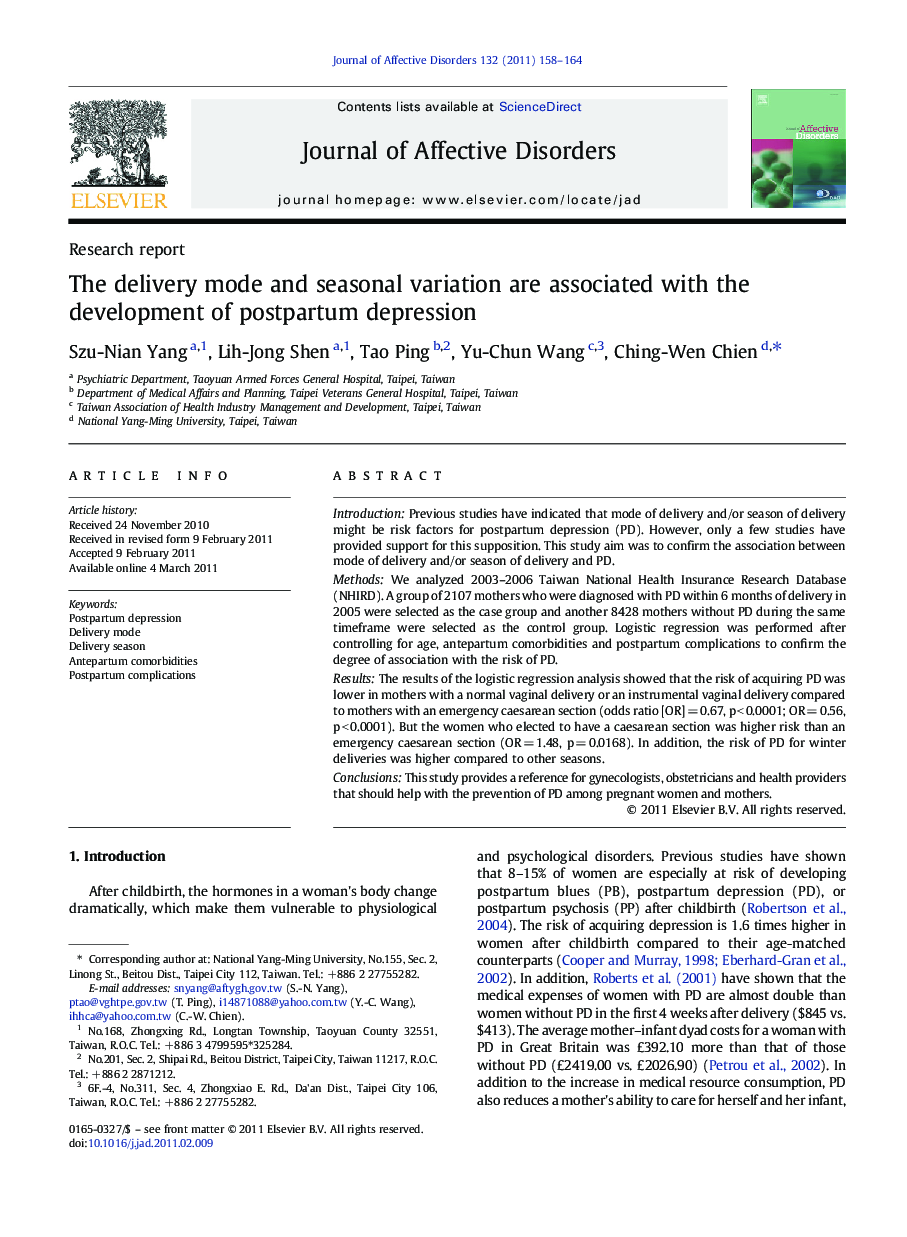| Article ID | Journal | Published Year | Pages | File Type |
|---|---|---|---|---|
| 6236114 | Journal of Affective Disorders | 2011 | 7 Pages |
IntroductionPrevious studies have indicated that mode of delivery and/or season of delivery might be risk factors for postpartum depression (PD). However, only a few studies have provided support for this supposition. This study aim was to confirm the association between mode of delivery and/or season of delivery and PD.MethodsWe analyzed 2003-2006 Taiwan National Health Insurance Research Database (NHIRD). A group of 2107 mothers who were diagnosed with PD within 6 months of delivery in 2005 were selected as the case group and another 8428 mothers without PD during the same timeframe were selected as the control group. Logistic regression was performed after controlling for age, antepartum comorbidities and postpartum complications to confirm the degree of association with the risk of PD.ResultsThe results of the logistic regression analysis showed that the risk of acquiring PD was lower in mothers with a normal vaginal delivery or an instrumental vaginal delivery compared to mothers with an emergency caesarean section (odds ratio [OR] = 0.67, p < 0.0001; OR = 0.56, p < 0.0001). But the women who elected to have a caesarean section was higher risk than an emergency caesarean section (OR = 1.48, p = 0.0168). In addition, the risk of PD for winter deliveries was higher compared to other seasons.ConclusionsThis study provides a reference for gynecologists, obstetricians and health providers that should help with the prevention of PD among pregnant women and mothers.
